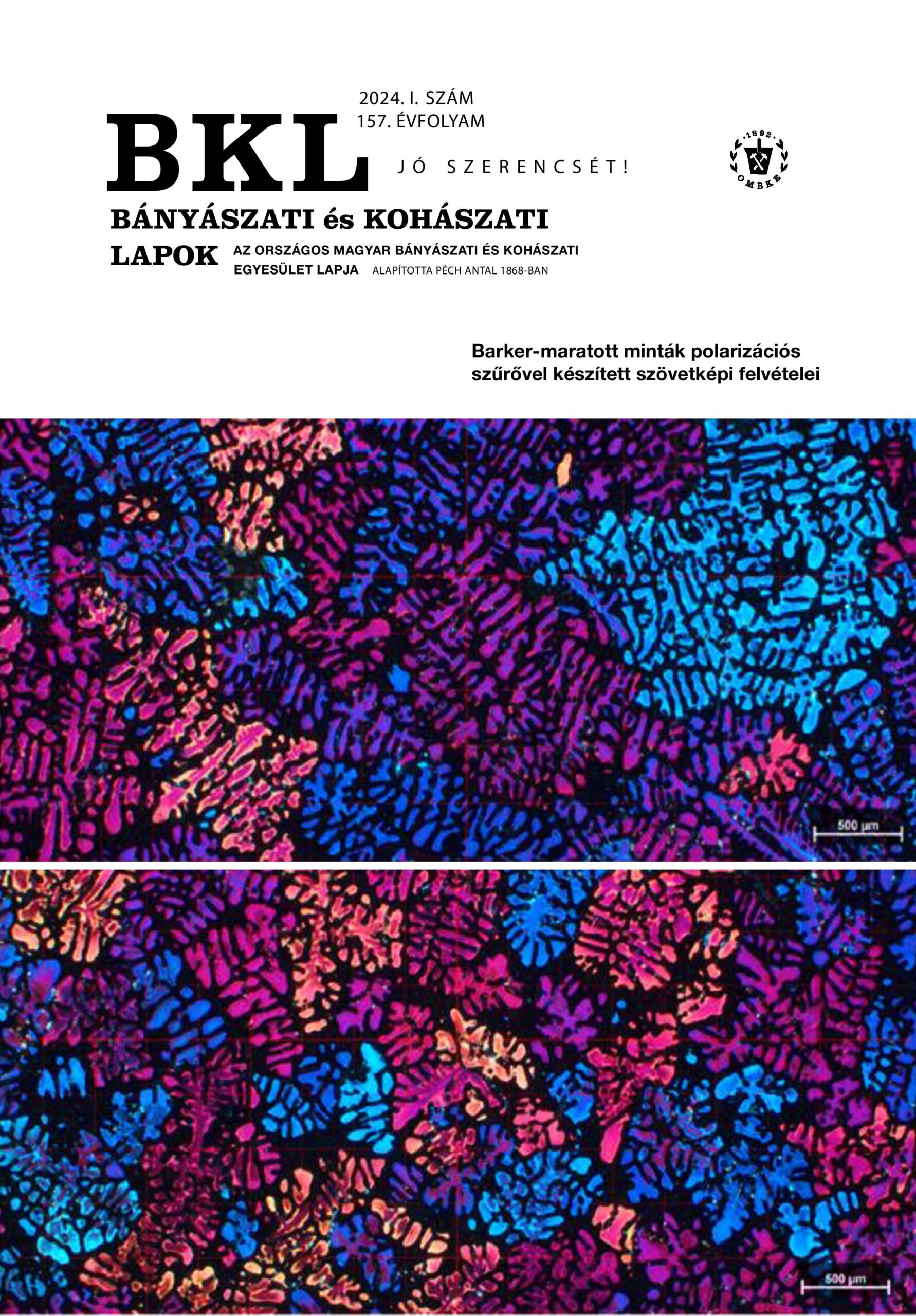InSAR applications for quarry monitoring
Abstract
The mining industry in Hungary has been gradually modernised over the last few decades. Stateof-the-art technologies are now used to monitor geometric changes in quarries. However, these technologies have spatial and temporal limitations. Microwave remote sensing technologies, on the other hand, allow for continuous and systematic observations. They provide surface acquisitions at each satellite pass, regardless of day and night or weather conditions. Therefore, they off er an ideal monitoring system. In this article, we provide a comprehensive overview of the potential of satellite radar interferometry for quarry monitoring, highlighting the benefi ts of the technology as well as its limitations. To monitor the stability of the Recsk mining operation of COLAS Északkő Ltd. between 2017 and 2023, we processed Sentinel-1 satellite radar images acquired within the framework of the European Space Agency’s Copernicus programme in four orbital geometries using cutting-edge interferometric stacking techniques. The processing results allowed the identifi cation of unstable parts of the quarry and the observation of their spatial and temporal development. Our research demonstrates that satellite radar measurements can be eff ectively integrated into stability studies and contribute to effi cient geotechnical investigations.
References
Berardino P. et al. (2002): A new algorithm for surface deformation monitoring based on small baseline diff erential SAR interferograms. IEEE Transactions on Geoscience and Remote Sensing, 40(11), 2375-2383. https://doi.org/10.1109/TGRS.2002.803792
Cigna F. et al. (2021): Accuracy of Sentinel-1 PSI and SBAS InSAR displacement velocities against GNSS and geodetic leveling monitoring data. Remote Sensing, 13, 4800. https://doi.org/10.3390/rs13234800
Dobos E. et al. (2022): Surface deformation monitoring and risk mapping in the surroundings of the Solotvyno Salt mine (Ukraine) between 1992 and 2021. Sustainability, 14, 7531. https://doi.org/10.3390/su14137531 https://doi.org/10.3390/su14137531
Ferretti A. et al. (2000): Nonlinear subsidence rate estimation using permanent scatterers in diff erential SAR interferometry. IEEE Transactions on Geoscience and Remote Sensing, 38(5), 2202-2212. https://doi.org/10.1109/36.868878
Ferretti A. et al. (2001): Permanent scatterers in SAR interferometry. IEEE Transactions on Geoscience and Remote Sensing, 39(1), 8-20. https://doi.org/10.1109/36.898661
Kovács I. P. et al. (2022): Do we need a higher resolution? Case study: Sentinel-1-based change detection of the 2018 Hokkaido landslides, Japan. Remote Sening 14, 1350. https://doi.org/10.3390/rs14061350
Pasquali P. et al. (2014): Mapping of ground deformations with interferometric stacking techniques. In: Land Applications of Radar Remote Sensing. Holecz F., Pasquali P., Milisavljevic N. (eds.) InTechOpen: London, UK, pp. 231-258. https://doi.org/10.5772/58225
Ronczyk L. et al. (2022) Nationwide, operational Sentinel-1 based InSAR monitoring system in the cloud for strategic water facilities in Hungary. Remote Sensing 14, 3251. https://doi.org/10.3390/rs14143251
Segalini A., Carri A., Savi R. (2017): The role of geotechnical monitoring: state of the art and new perspectives. Geotechnical Society of Bosnia and Herzegovina GEO-EXPO 2017 Sarajevo, October 26th and 27th, 2017. https://doi.org/10.35123/GEO-EXPO_2017_3



